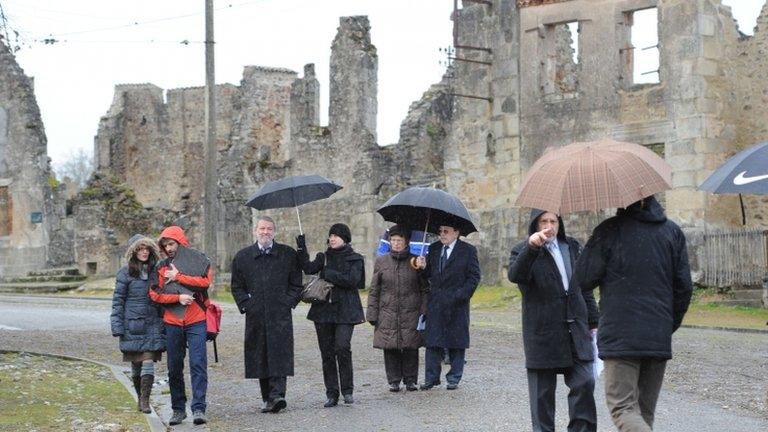Nazi Oradour massacre: German court throws out case
- Published
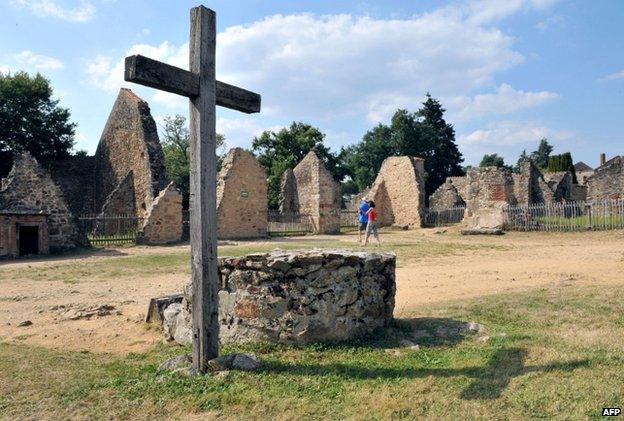
The villagers were locked into the church before grenades were thrown into the building and it was set alight
A court in the German city of Cologne has said there is not enough evidence to try an 89-year-old man accused over an infamous Nazi massacre of civilians in France.
SS troops murdered 642 people in the central village of Oradour-sur-Glane on 10 June 1944.
Werner C did not deny being in the village but said he had no direct involvement in the murders.
Prosecutors accused him of shooting 25 people and helping to murder many more.
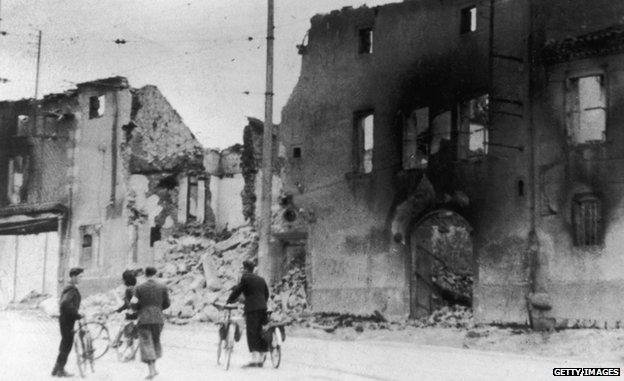
The men were separated from the women and children before the massacre began
Some 450 women and children were herded into a church in the village, then grenades were thrown into the building and it was set alight.
The men were shot before being locked in a barn, which was also set on fire.
The ruins of the village have been left as they were in 1944 as a permanent memorial to those who died.
The suspect, whose full name was not given in court under German privacy laws, was charged by prosecutors in Dortmund in January, after files on six soldiers who were still alive were uncovered in the archives of the Stasi secret police in the former East Germany.
Twenty soldiers were convicted for their part in the murders in the 1950s, but all were subsequently freed.
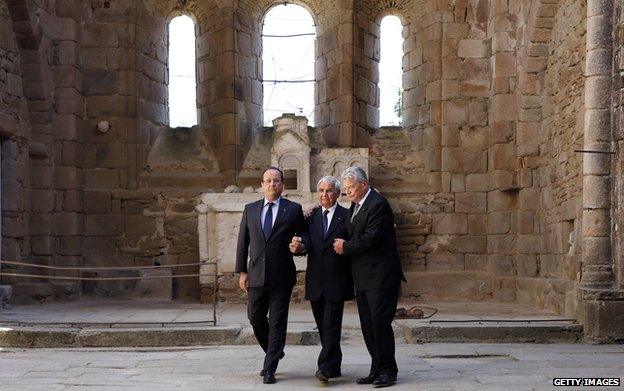
Germany's President Gauck (R) visited the village last year with President Holland and survivor Robert Hebras (C)
Werner C had been a member of an SS mechanised infantry regiment known as The Fuehrer, according to prosecutors, and had been listed as a machine gunner.
However, the court said a trial would only be able to establish that he was in the area during the massacre and rejected the list as incomplete. "This mere presence is not enough to prove accessory to murder without the proof of other circumstances," the court said.
The Dortmund prosecutors have a week in which to appeal against the decision.
A clear motive for the massacre of French civilians was never fully established, although there were suggestions that it was a reprisal for the kidnap of a German officer.
In an interview earlier this year, the suspect claimed he had saved two women, urging them to head for a nearby forest.
Oradour-sur-Glane has served as a symbol of reconciliation in recent years between Germany and France.
Last year, German President Joachim Gauck stood hand-in-hand in the village with President Francois Hollande and an 88-year-old survivor, Robert Hebras.
- Published8 January 2014
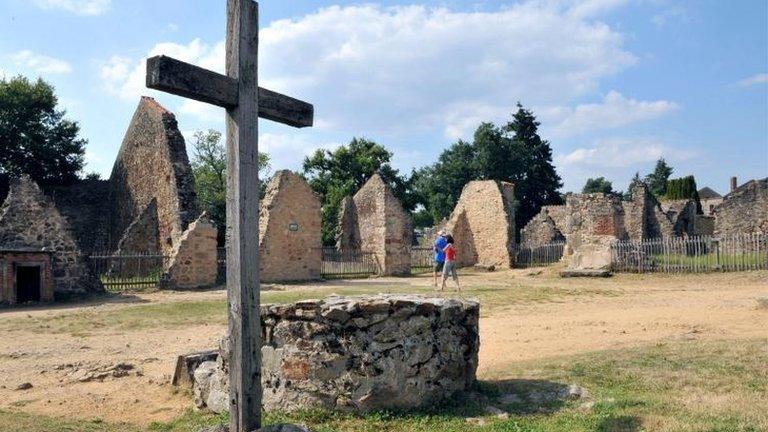
- Published30 January 2013
